- DETERRENCE: A Plutonium-Rich Asia
- DPRK: STTB: Russian Invasion Edition
- GOVERNANCE AND CIVIL SOCIETY: Korea, New Issues Threaten Regional Security: Seoul FM
- ENERGY SECURITY: The Problem with Energy Efficiency
- CLIMATE CHANGE ADAPTATION: Retreat from Retreat – The Backward Evolution of Sea-Level Rise Policy in Australia, and the Implications for Local Government
- CLIMATE CHANGE AND SECURITY: A Disagreement over Climate-Conflict Link Heats Up
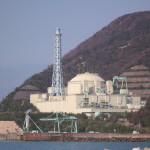 DETERRENCE: A Plutonium-Rich Asia, Henry Sokolski, National Review On-line, September 24, 2014
DETERRENCE: A Plutonium-Rich Asia, Henry Sokolski, National Review On-line, September 24, 2014
US Department of Energy (DOE) is encouraging development of new types of “fast” reactors in Japan, South Korea, and China by technical collaboration. This would result in stockpiling of many tonnes of separated plutonium in Northeast Asia with substantial proliferation and terrorism risks. This US collaboration should end.
- Bilateral Cooperation, Office of Nuclear Energy Policy and Cooperation, US DOE, 2014
- DOE fast reactor collaboration with China, Peter Lyons, slides 7-8, 15, US DOE presentation at IAEA Fast Reactor Conference, March 4, 2013
- Factsheet: Third Meeting of the U.S.-Japan Bilateral Commission on Civil Nuclear Cooperation, US DOE, June 14, 2014
- Plentiful Energy: The Story of the Integral Fast Reactor, Yoon Il Chang, Argonne National Laboratory, International Symposium, Peaceful and Safer Use of Nuclear Power, Role of Integral Fast Reactor, University of Tokyo, May 28, 2014
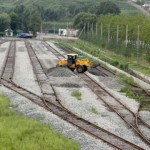 DPRK: STTB: Russian Invasion Edition. Kevin Stahler, North Korea: Witness to Transformation blog. (3 November 2014).
DPRK: STTB: Russian Invasion Edition. Kevin Stahler, North Korea: Witness to Transformation blog. (3 November 2014).
North Korea’s shows signs of trying decisively to move away from China’s economic orbit. However, there will likely be negative repercussions for the economic portion of Kim’s byungjin policy. North Korea has not constructed the customs house and road network that would have connected it to 110 million consumers in China’s Northeast Provinces. North Korea is recovering its economic relationship with South Korea in Kaesong and moving toward Russia by recently signing a deal allowing Russia access to North Korea’s considerable mineral wealth in exchange for Russia building approximately
- Report: China-North Korea bridge opening postponed indefinitely. Seong Yeon-cheol, The Hankyoreh. (1 November 2014)
- Kaesong Industrial Complex: one year after resuming operations. Institute for Far Eastern Studies. (26 September 2014)
- Russia to revamp North Korea’s rail system, eyes mineral resources. Michelle FlorCruz, International Business Times. (30 October 2014)
 GOVERNANCE AND CIVIL SOCIETY: Korea, New Issues Threaten Regional Security: Seoul FM, Yonhap (28 October 2014)
GOVERNANCE AND CIVIL SOCIETY: Korea, New Issues Threaten Regional Security: Seoul FM, Yonhap (28 October 2014)
As the US and ROK further delay the transfer of wartime control, the ROK Foreign Minister has cited new issues that threaten regional security, though they don’t sound new: the DPRK nuclear threat and historical and territorial issues in the region. ROK and DPRK ties have cooled again due to the DPRK’s stance of no talks until ROK activists stop sending propaganda leaflets across the border.
- Korea raps S. Korea for delaying OPCON takeover, Yonhap (29 October 2014)
- Balloon activist says he may postpone campaign, Kang Jin-kyu, Joongang Ilbo (4 November 2014)
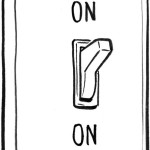 ENERGY SECURITY: The Problem with Energy Efficiency, Michael Shellenberger and Ted Nordhaus, Opinion, New York Times (8 October 2014)
ENERGY SECURITY: The Problem with Energy Efficiency, Michael Shellenberger and Ted Nordhaus, Opinion, New York Times (8 October 2014)
Emission reductions from energy efficiency gains are as unpredictable as the demand and price of energy or valuation of energy companies. Structural linkages and consumer preferences aren’t all that amenable to simplistic models of physicists and economists. But the insane rush in boasting noble intents where the sane fear to tread.
- Is there room for agreement on the merits and limits of efficient lighting, Andrew C. Revkin, DotEarth (21 October 2014)
- Light bulbs get smarter, but not easier, Geoffrey A. Fowler, Wall Street Journal (23 September 2014)
- Fuel economy gains poised to slow, Joseph B. White, Wall Street Journal (8 October 2014)
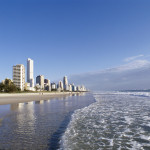 CLIMATE CHANGE ADAPTATION: Retreat from Retreat – The Backward Evolution of Sea-Level Rise Policy in Australia, and the Implications for Local Government, Justine Bell and Mark Baker-Jones, Thomson Reuters (2014) [367 KB, PDF]
CLIMATE CHANGE ADAPTATION: Retreat from Retreat – The Backward Evolution of Sea-Level Rise Policy in Australia, and the Implications for Local Government, Justine Bell and Mark Baker-Jones, Thomson Reuters (2014) [367 KB, PDF]
Climate Change is expected to cause rising sea-levels, threatening and the built environment. Most Australian State Governments have responded to the threat of rising sea-levels by implementing laws and policies guiding future development at risk areas. However, a number of Australian States have taken action to weaken these policies in the wake of State elections, allowing for increased development in vulnerable areas.
- Climate Change: Adaptation for Queensland, Issues Paper, Department of Environment and Resource Management, State of Queensland, Australia (2011) [2.09 MB, PDF]
- Government Coastal Planning Responses to Rising Sea Levels, Australia and Overseas, Technical Report, Meg Good, The Antarctic Climate & Ecosystems Cooperative Research Centre (2011) [1.57 MB, PDF]
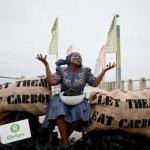 CLIMATE CHANGE AND SECURITY: A Disagreement over Climate-Conflict Link Heats Up, John Bohannon, Science (28 October 2014)
CLIMATE CHANGE AND SECURITY: A Disagreement over Climate-Conflict Link Heats Up, John Bohannon, Science (28 October 2014)
Risk management is the motif of the latest IPCC synthesis longer report on climate change impacts: “Without additional mitigation efforts beyond those in place today, and even with adaptation, warming by the end of the 21st century will lead to high to very high risk of severe, widespread, and irreversible impacts globally (high confidence),” Meanwhile econometricians trade insults over the use and misuse of climate change and conflict meta-analyses.
- One effect to rule them all? A comment on climate and conflict, H. Buhaug (and 25 others), Climatic Change (27 October 2014).
- Reconciling climate-conflict meta-analyses: reply to Buhaug et al., Solomon M. Hsiang, Marshall Burke, and Edward Miguel, Climatic Change (28 October 2014)
- Longer Report, Synthesis Report, Climate Change 2014: Impacts, Adaptation, and Vulnerability. Part A: Global and Sectoral Aspects. Contribution of Working Group II to the Fifth Assessment Report of the Intergovernmental Panel on Climate Change (1 November 2014)
The Nautilus Peace and Security Weekly Report presents articles and full length reports each week in six categories: Austral security, nuclear deterrence, energy security, climate change and security, the DPRK, climate change adaptation and governance and civil society. Our team of contributors carefully select items that highlight the links between these themes and the three regions in which our offices are found—North America, Northeast Asia, and the Austral-Asia region.
- Subscribe to NAPSNet to receive free weekly email reports.
- Reports Editor: Frederica Kreitzer
Contributors:
- Deterrence: Peter Hayes
- DPRK: Roger Cavazos
- Governance and Civil Society: Dyana Mardon
- Energy Security: Nikhil Desai
- Climate Change Adaptation: Saleem Janjua
- Austral Peace and Security: Richard Tanter

